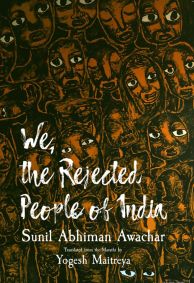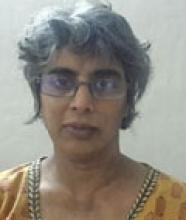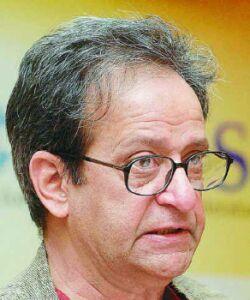Dr. Sunil Abhiman Awachar

Dr. Sunil Abhiman Awachar
Dr. Sunil Abhiman Awachar is well known as a point and painter, also an assistant professor with the Department of Marathi in the University of Mumbai. Meanwhile, he is a full-time activist in the Dalit human rights movement. He has published four anthologies of poetry, all in Marathi, that include Global Vartamanachya Kavita (2008), Mi Mahasattechya Darashi Katora Gheun Ubha Rahanaar Nahi, Bravo! Fox Minds of Capitalist and Poems of the Occupied Everything.
-
 We, the Rejected People of IndiaINR 299
We, the Rejected People of IndiaINR 299We, the Rejected People of India is an anthology of Marathi Dalit poems in which a dilemma of being a Dalit in the elite spaces is very much visible. Read them, and you will have a differe...

Partha Chatterjee
Partha Chaterjee is Professor of Anthropology and South Asian Studies, Columbia University, New York and Honorary Professor, Centre for Studies in Social Sciences, Calcutta. His many books include

Ira Raja
Ira Raja is Assistant Professor, Department of English, University of Delhi and post-doctoral research fellow at La Trobe University, Australia. She has edited Grey Areas: An Anthology of Indian Fi

Archana Prasad
Archana Prasad is Professor at the Centre for Informal Sector and Labour Studies, Jawaharlal Nehru University, New Delhi. She is the author of Against Ecological Romanticism: Verrier Elwin and the

Ernesto Screpanti
Ernesto Screpanti is a Professor of Economics of Globalization at the University of Siena, Italy. His recent publications include The Fundamental Institutions of Capitalism, An Outline of the Histo

Aijaz Ahmad
Aijaz Ahmad (1941-2022) was one of India's best-known Marxist scholars. His best-known books include In Theory: Classes, Nations, Literatures (1992), Lineages of the Present: Ideological and Politi
